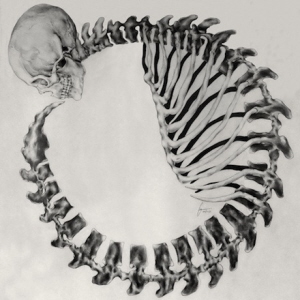Dutch Racism: Call me a ‘Gutmensch’ in an ouroboros-culture

One of the lessons of Karen Attiah‘s critical article in the Washington Post (published on august 13) taught me is simply that in the case of racism such a tempered ‘ideal’ history clearly does not exist. Obviously so for the United States, for in the US culture still strong elements of racism still persist, but this is also – and in some perspectives even more so – the case for the Netherlands.
At this point I must first make a confession:
Not so very long ago, I myself was very annoyed by the anti-racist campaign against Black Pete (Zwarte Piet). I mistook the innocence of the child that is subjected to the Sinterklaas-celebrations for the innocence of the phenomenon itself. For me, white, and brought up with this ritual, I simply could not see how stigmatising the image of Black Pete really was. A blindness that defines all unintentional racist expressions. (Now I find it extremely hard to imagine that I was blind to something so obvious.) This cultural blindness of the Dutch does not confine itself exclusively to the image of Black Pete, as the NRC has shown the world recently.
The big difference between racism in the US and in the Netherlands lies thus in the awareness people have themselves of their own racism in their daily lives. The Dutch still base their national pride on their tolerance of other cultures, finding it impossible to be racist themselves, while in the US it seems out there in the open, more consciously endorsed by both the pro’s and con’s. Like what for a long time was the case with Black Pete, Dutch people simply do not reflect on the racist elements that are contained in their culture. Nor do they (indeed) recognise the obvious lack of integration of blacks and others in especially the elite-circles of our society. Like the ouroboros Dutch racism only eats its own tail, it keeps itself alive by feeding repeatedly on the same racist acts and utterances.
And truly racism in the Netherlands is everywhere, it is manifest in all social classes, and truly sometimes more so in the the intellectual-elitist, white dominated scenes of our little kingdom. But it is mostly in hidden form, only barely visible in daily lives normally, with the exception of jokes. The most painful example of it are the ‘negergrappen’. Negergrappen (jokes about negro’s) are whispered on many a BBQ or birthday party. Only between whites of course, but no party goes by without one.
Some forms of racism are more visible: for example the popular pop radio-channels prefer white rappers before blacks. And as Attiah mentioned, the media are dominated by white people. Visible also is police racism, as seen at beating of an Aruban man by the police (resulting in his death).
After the Black Pete-debate there is no excuse anymore for ignorance. Ignorance that seemed strong enough for Erik de Vlieger to respond to Karen Attiah’s article by way of an ad-hominem referring to the Dutch slave-trade tradition. A tweet that was regarded very funny to many Dutch tweeps.

But it wasn’t. It is a blatantly stupid and essentially racist comment. And for sure De Vlieger does not consider himself a racist, he might consider himself even as a sort of ironical philanthropist making a kind of ‘negergrap’ and even be proud on his daresay. De Vlieger’s remark is an example op the ouroboros-racism of the Dutch intellectual: the ‘daresayer’ cannot be racist because it is a daresay and could not have been a daresay if the intention was racist. To utter racist opinions is even considered by some Dutch tweeps as courageous. Our colonial history is behind us, it has no place in the present and one can make jokes with it. Next to De Vlieger the NRC is only a more correct form of this ouroboros-daresay-ignorance (= racism).
If someone is openly writing against racism, he of she will soon be considered as “goedmens” (Gutmensch), an overly correct person, a moralist. It happened to me more than once in the immigration discussion. In the Dutch social-media discourse on racism and immigration the morally correct have become the incorrect. The popularity of this kind of ‘daresayers’ feed further on fears of IS and radical Islam.
Still I hope dat the Dutch are willing to open-up to their history and the racist elements therein that are still active today. The controversy between the NRC and the Washington Post might be helpful in reducing some of the Dutch blindness, but I will expect the ouroboros will continue to feast on his own flesh for some time.
Before Dutch history (culture) to change, the ouroboros probably has to eat its head. But I will not be a part of it…
Call me a Gutmensch in an ouroboros-culture.
Sven de Graaf
(This article was published first on Sven’s blog “Weerword”)

Nederlanders zijn wereldkampioenen staarteters aller tijden. Ze doen niks anders.
Condor